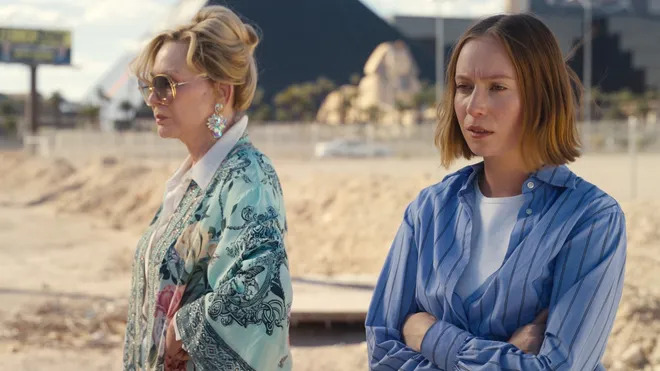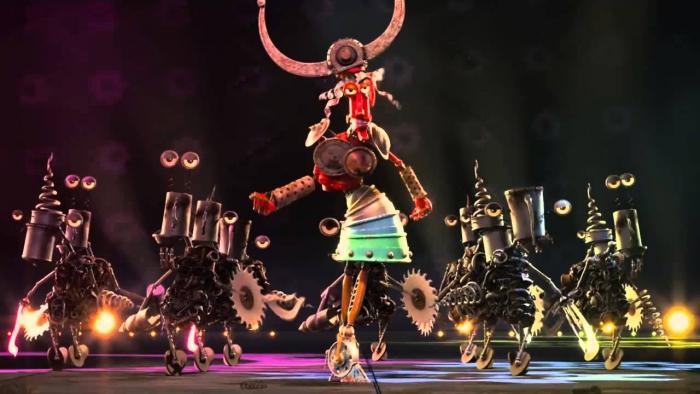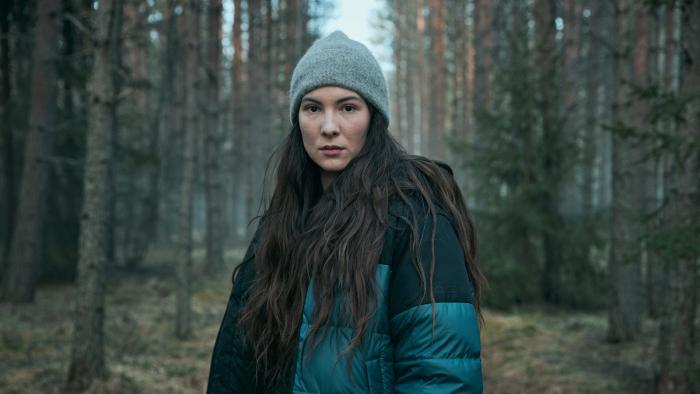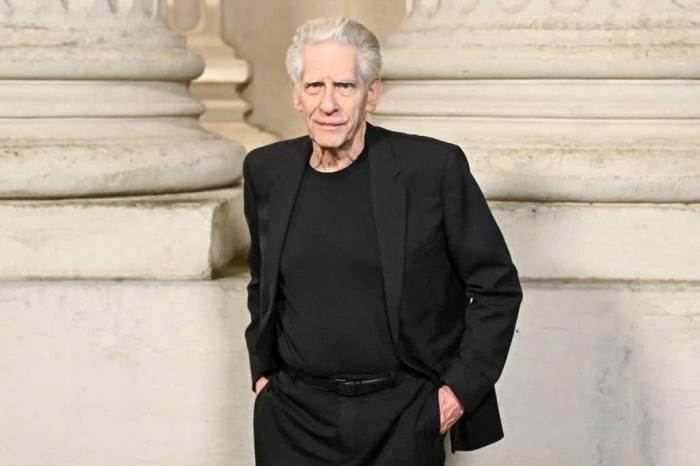
Why ‘The Phantom of the Opera’ Remains My Most Beloved Pop Culture Trash
By Kayleigh Donaldson | Miscellaneous | April 22, 2020

As the near-global lockdown driven by the COVID-19 pandemic continues, the entertainment world has scrambled for ways to provide much-needed distractions for its captive viewership, as well as means to help plug the growing gaps left behind by rescheduled movie releases, canceled events, and industry-wide uncertainty. Some talk-show hosts are working from home to mixed effect, while celebrities have organized charitable at-home events and all manner of new ways to embarrass themselves. T.V. boxsets are being binge-watched while some of us have pondered how many hours of podcasts we can catch up on during our government-allotted one hour of outside exercise (spoiler: not that much.) The oft-troubled worlds of theater and art have tried to make lemonade from the increasingly shriveled up lemons left in their wake, choosing to bring the inimitable experience of watching live performance to our homes. You can watch some of the most acclaimed plays put on by the National Theater, or perhaps you see now as a perfect time to check out a Met Opera production for the first time. Of course, if you’re me, then this was the right moment to indulge in some old-school mega-musical in its most beautifully trashy form. Yup, you know what I’m talking about.
To raise money for the Actors’ Fund and the NHS, among other groups, Andrew Lloyd Webber is live-streaming filmed productions of his musicals. I didn’t stick around for Jesus Christ Superstar but believe me, the moment that the Phantom of the Opera was announced, I began to prepare. I’m talking food and drink, a totally emptied schedule for my Friday night — not that my diary is packed right now or anything — and a commitment to a joyous evening of singing along and live-tweeting. It was spectacular and I regret nothing.
There are certain pieces of pop culture that will always stick with you because they appeared in your life at just the right time and left an impact so indelible that nothing, not even common sense or the smashing of one’s rose-tinted nostalgia goggles, can change that. I could name a dozen such examples off the top of my head but the one that I’ve ended up most fascinated by as I get ready to enter my 30s is The Phantom of the Opera. My interests have always lain with both the book and the Lloyd Webber musical, as well as the myriad adaptations across genre and medium. I have an extremely clear memory of the day I bought a copy of Gaston Leroux’s murder-mystery novel for 99p from my local now-defunct Borders, an edition from the Penguin Classics line with a bright green cover and words printed on what may as well have been toilet paper. I read it multiple times then lost it, which forced me to buy a new copy. I recently acquired my third copy of the book, but in fairness, this one is a different translation. I knew the book had been adapted into a musical because my mum had seen it on stage, and around the time I discovered the book, the movie version of said musical was about to premiere in theaters, so of course, I had to get very obsessed very quickly. Never let it be said that an adolescent fangirl on a mission can’t get stuff done.
You only have to look at the numbers to see that Andrew Lloyd Webber’s musical, which first premiered on the West End in 1986, is a huge f**king deal: It remains the longest-running show in Broadway history, with over 13,300 performances to its name, and is beaten only by Les Misérables on the West End in terms of musicals, having run continuously for close to 35 years. Having made over $1 billion on Broadway alone and around $6 billion worldwide, Phantom is one of the most financially successful pieces of entertainment of all time, beaten only by The Lion King, which has the benefit of more widespread appeal beyond the stage and the might of Disney in its corner. Musical theater as a whole would not exist in the form that it does not without this show, for better or worse. Is it objectively good? I’m sure I’m too biased to say for certain, but as a slice of pure entertainment that appeals entirely to me in every conceivable way, it’s basically perfect, and I know I’m not alone on that. There are millions of us former horny teen girls, okay?! The perverts get Cats and we get this!
For those of you new to the delights of Phantom, the story is a simple one: A young soprano named Christine Daae becomes the bright new star of the Palais Garnier in Paris thanks to her angelic voice. She proves to be the perfect replacement for the company’s last diva, who fled because she was sick of all these weird accidents happening around the building that seemed dead set on killing her. The rumors swirl that the opera house is haunted by a vengeful ghost, but nope, it turns out to be a skull-faced murder incel named Erik who lives in the basement, sleeps in a coffin, and is obsessively in love with Christine to the point where he has pretended to be a literal angel of music sent to teach her to sing by her dead father. Kidnapping, weird sexy stuff, garrotting, and tongue-action follow.
It’s the best.
The show is the most sublime exemplification of the mega-musical that dominated the West End and Broadway in the late ’70s and 1980s: High concept, big-budget spectacles designed to appeal to as wide an audience as possible, particularly in the age of cheap international travel and the growing tourist market. Lloyd Webber was a major pioneer in the musical’s evolution into a multi-billion dollar a year enterprise, but for someone who is (rightly) criticized for his oft-derivative music and business-focused agenda, he doesn’t get enough credit for how f**king weird his biggest musicals are. In hindsight, it’s kind of astounding that someone made billions of dollars from shows about a South American dictator’s wife, toy trains played by people on roller-skates, the ritualistic sacrifice of a hooker street cat, and a hot murderer’s kidnapping attempts. Indeed, Phantom might be the most ‘normal’ show he’s done (and I’m not even getting into the stuff he made in the 1990s.)
Spectacle remains a huge draw for Phantom all those decades later. You really get bang for your buck when you go to see Phantom, from the endless use of smoke machines to the lavish costumes to that falling chandelier. Sure, your local community theater group can try and recreate the magic on a way smaller and cheaper scale but it’s just not the same thing. As someone who spends a lot of time-consuming corset-heavy pop culture and whose ideal level of candles in my house at any given time is ‘Bonnie Tyler music video numbers’, I will always appreciate the lurid splendor of Victoriana grandeur by way of ’80s excess.
The Phantom of the Opera is what cultural experts describe as a ‘problematic fave.’ Yo Kayleigh, aren’t you big into that whole feminism thing? How do you justify being all-in on a show with a murder incel as the romantic hero? Doesn’t he literally kill people and kidnap a much-younger woman who he’s been gaslighting for most of her life? Why yes, all of those things happen and I can’t justify them, nor will I even try.
The adaptation is way more romantically focused than the book, which is more a standard murder-mystery in keeping with Leroux’s other works. Lloyd Webber had wanted to write a high romance musical for a long time and, after reading the book, it was that central relationship between the deeply religious young soprano and everyone’s favorite coffin-sleeping murder-boy that he decided was prime for such purposes. He also wanted to write something for his new young wife, the soprano Sarah Brightman, and the parallels between creator and creation have escaped literally nobody over the decades. Ooh gee, I wonder why a composer writing a romantic epic for his wife would find the story of Erik so compelling…
In fairness, it was this choice to turn a pulpy mystery novel into a full-on romantic melodrama that made Phantom of the Opera so appealing as a musical. It’s all about those heightened emotions and the overwhelming, feverish intensity of forbidden love that kept us fangirl perverts returning time and time again. Within the specific confines of this narrative, the story works, and even though we all know that there’s really nothing romantic about this setup, the emotions still feel authentic. The chances are that you’ve never kidnapped anyone or forced an opera company to perform your fanfiction but we’ve all felt jealousy and self-loathing and the painful pull of a bad relationship in some form. As much as the over-the-top passion of the story feels utterly unreal to our world (deliberately so), enough of the story is grounded in our own sense of emotion to be compelling beyond novelty value. Crucially, our tragic anti-hero doesn’t get what he wants in the end. After Christine shows him true empathy and selflessness, something he’s never experienced — via the magic of a full-on tonguing kiss, of course — he realizes the horror of his toxic ways and lets her go. Erik is a damaged man because the world has made him so but he is not irredeemable, an aspect of the book that most adaptations just don’t bother to confront. The musical offers a complete character arc and satisfying ending that former teen fans like me may have grumbled over and rewritten via fic many times over but it works for a reason. It would sure be a shame if Lloyd Webber wrote an utterly unnecessary sequel that undoes all that, right?
By the way, Love Never Dies is screening this Friday on YouTube. Bring booze.
Nostalgia goes a long way to answering the question of why I continue to love Phantom so much, but my love of it cannot be summed up so easily. For better or worse, we are shaped by the culture around us and the stories we consume as children. I wouldn’t say that The Phantom of the Opera impacted my views on love or kidnapping, but it certainly gave me a way to explore my own ideas of relationships, toxicity, and power. Moreover, it was a crucial foundation in my understanding of the power of one’s own personal and romantic fantasies. One of the reasons I adore romance novels and fan-fiction is that they provide the perfect means for readers, particularly women, to safely explore taboo ideas and oft-undiscussed aspects of life. I will forever treasure that about this wonderfully trash-ball musical, long after the chandelier has fallen.
But the movie adaptation is still terrible. Who thought it was a good idea to let Gerard Butler sing?!



